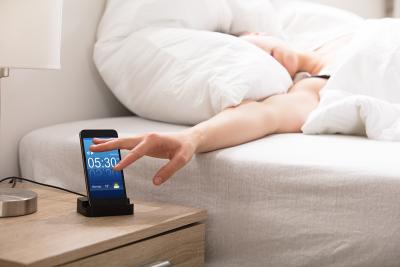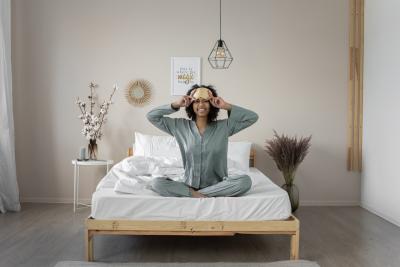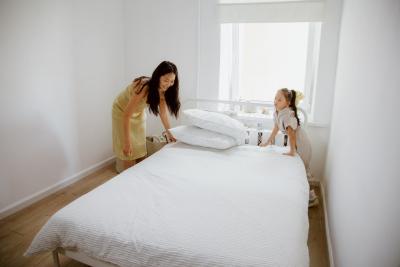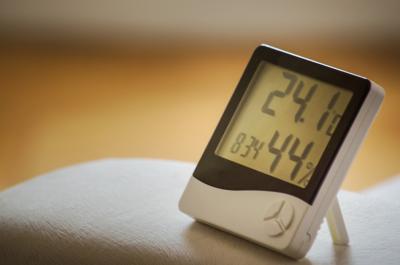Sleep is an essential part of life. If you don’t sleep for a few days, it’s inevitable that you’ll feel terrible and you’ll find it hard to function properly - but how much sleep do you really need each night?
Tim Cook, the CEO of Apple, reportedly gets only 5 1/2 hours of sleep a night, and many successful business people and entrepreneurs boast that they get by on the bare minimum when it comes to sleep. They argue that less sleep allows them to work long hours and therefore get more done, but science is definitely questioning their logic.
So, how much sleep do I really need?

What does science say about sleep?
Research from the Centre for Translational Neuromedicine found that whilst you are sleeping, fluids are being pumped through your brain that filter toxic waste products. This filtration system helps protect the body from neurological illnesses, such as Parkinson’s disease and Alzheimer’s. Cerebrospinal fluid filters through the brain for six to eight hours, so, if you don’t sleep for a day or two, then this system is not operational and leaves a build-up of harmful chemicals in your brain.
If you sleep less than the six to eight hours needed to remove harmful chemicals, then the result will be a loss of cognitive functions, memory lapses, and the inability to make decisions.
How much sleep do adults need?
We all know the recommended eight hours of sleep myth, but this isn’t as trustworthy as we might have once thought. So, we know what you’re thinking - how much sleep do I need?
The amount of sleep you really need differs from person to person. However, studies show that most people need between seven and nine hours of sleep per night. There are several factors that may indicate how much sleep you really need. For example, age!
The average sleep time by age can vary massively. Whilst adults need somewhere between seven and nine hours per night, toddlers will most likely need anywhere between eleven and fourteen! Taking note of recommended sleep by age can really make a difference in your day-to-day life, so keep this in mind when planning your busy schedule!
Wondering how to improve your overall sleep quality? We’ve got you covered!
Struggle to sleep? Try napping
If you struggle to sleep for at least six hours per night, then taking regular 20 minute naps during the day can help. Naps can help flush out more toxins in the brain and are guaranteed to make you feel a little less fatigued.
Or, better still, have an afternoon siesta of 60 to 90 minutes! Countries such as Spain traditionally have afternoon siestas to validate the benefits of an after-lunch snooze.
Another advantage of getting the recommended amount of sleep is that it helps regulate emotions and contributes to creative thinking. When tired, people find it difficult to come up with creative ideas.
Or even, sleep at work (maybe)
Fun fact: Google recognises the benefits of a good sleep. The company provides its employees with special Google sleep pods that recline into the optimal napping position to promote blood circulation and reduce pressure on the lower back.
So, the next time your boss catches you napping at work, politely remind him or her that you are recharging your brain to ensure you work more efficiently. The more sleep you get, the better you will be at handling the task at hand.

Never underestimate the importance of sleep
Whilst it can sometimes be hard to fit eight hours of sleep around work, the gym, socialising, and everything else in our hectic schedules, never underestimate the importance of a good night’s kip. Not only will it be much easier to perform day-to-day activities, but it also helps reduce stress, illness, and much more.
Ensure that your bedroom is optimised to help you sleep better. Whether that's making sure you've got the comfiest pillows, or finding the perfect mattress, every little thing can make sleeping easier than ever!












